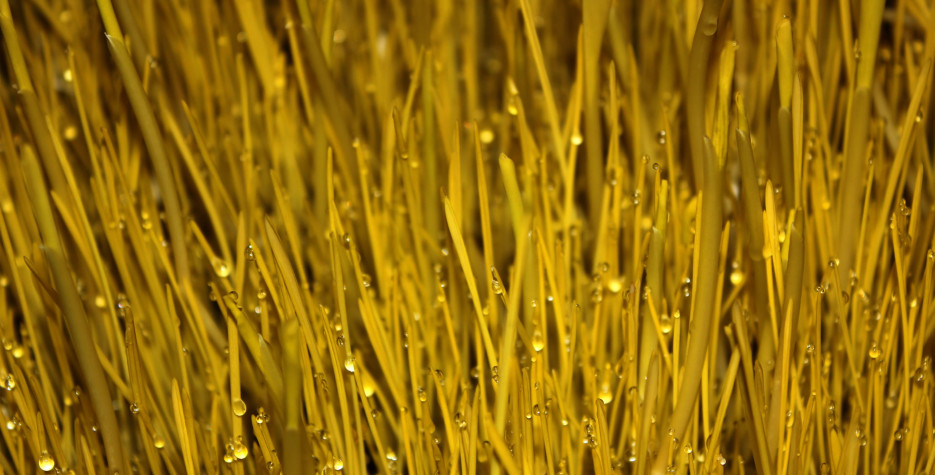Ghatasthapana marks the first day of Dashain. For Hindus, this festival celebrates the victory of the goddess Durga over the demon Mahishasura.
Ghatasthapana means setting up a Kalash (pot), which will symbolise the goddess Durga. Sacred grass called jamara will be grown in the Kalash to be used during Dashain.
Preparing the Kalash and the seeds all takes place in a room known as the Dasain Ghar. The ritual is undertaken on Ghatasthapana with a set of instructions followed by devotees:
- Take a pitcher with made of mud or copper and fill it with soil and sow seven types of grains like barley, wheat etc. Nowadays people opt for single grain or lentil or gram.
- While sowing the grains, mantras dedicated to Lord Varuna are chanted.
- Using more soil, make a thick square bed. Grains are sown on this too.
- Place a photo of Goddess Durga or any other incarnation of Goddess Shakti in the room near the sand bed.
- A copper or silver or earthen pot is made to be the Kalash. It is filled with water, sandalwood, flowers, durva grass, rice mixed with turmeric (akshata), betel nut, five leaves, five gems or a gold coin. A coconut is placed on top of the Kalash - some people avoid placing the coconut and instead use a garland to cover the top.
- Morning and evening lamps are lit and in some houses, a lamp remains lit for all the nine days.
- The mantras that are chanted during puja vary from region to region and vary with family tradition.
- Sprinkle some water to keep everything moist.
- Fresh flowers and garlands are offered to Goddess Durga or Shakti on each of the next nine days.
- By the tenth day, the grains will have grown to about 5 inches and these are cut and given to family members, friends and neighbours as a religious offering.


